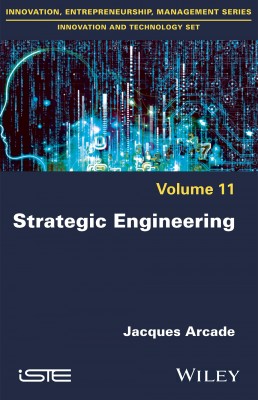
In the face of increasing complexity, uncertainty and difficulty in the design and implementation of reforms, companies, organizations and institutions must strive to capitalize on the prevailing disarray by acting wisely in overcoming it. Strategic engineering is part of an integrative, tool-based approach, inspired by the life sciences and “creative recursion”.
This book is structured into three parts, which correspond to the three main phases of the strategic engineering approach: observe and discern; judge and arbitrate; act and intervene. Strategic Engineering has wide appeal, relevant to senior leaders, decision-makers, managers and practitioners within businesses, government and local authorities. It is also intended for those who wish to develop their capability in anticipatory or transformative management within economic, sociopolitical and strategic contexts.
Part 1. Observing and Discerning: Contextualizing the Situation and Recommending a Consistent Set of Options
1. Understanding the Strategic Landscape.
2. Imagining and Directing Plausible Futures.
3. Developing Relevant Strategic Initiatives.
Part 2. Judging and Arbitrating: Evaluating and Reconfiguring Recommendations to Decide on a Successful Intervention
4. Defining Priorities and Gauging Courses of Action.
5. Revealing Areas of Potential and Adopting a Decision-making Logic.
6. Recomposing Solutions and Making the Best Decisions.
Part 3. Acting and Intervening: Judiciously Guiding Action to Generate a Virtuous Dynamic
7. Identifying Predispositions to Act and Generating Compromises.
8. Breathing Lasting Vitality into the Long Term.
9. Forging a Guidance System and Deploying Skills.
Jacques Arcade is a statistician-economist and teaches on various Master’s programmes (Sciences Po Rennes, University Paris Dauphine, University Paris 13 and the IRTS Foundation). He is a chief technical adviser to the United Nations and heads consultancy firms, leading many initiatives for forward-looking thinking and strategic innovation.